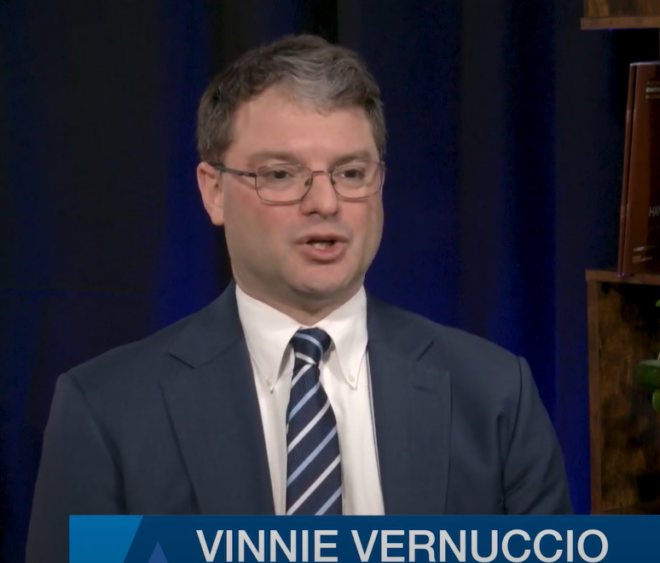Posts tagged agency fees
Know your Janus rights: Government employees still can’t be forced to pay unions in Michigan
March 31, 2023 // “Passing bills that are currently unconstitutional can mislead employees into believing that the law has changed and that they must now pay a union,” said Steve Delie, director of labor policy at Mackinac Center for Public Policy. “Public sector employees across the country have a First Amendment right to not pay a union thanks to the U.S. Supreme Court’s Janus v. AFSCME decision. Repealing right-to-work does nothing for public sector employees except cause confusion.”
OP-ED | Connecticut Lawmakers Block Pro-worker Reforms
March 16, 2023 // House Bill 5343 would have given public employees, like my fellow teachers, the right to vote at least every four years on whether to keep or replace their unions. A good union, a strong union — a union in spirit — that serves its members well would earn their votes and the supreme compliment of being recertified, while a weak or corrupt union that loses its members’ trust would be entitled no longer to a monopoly on bargaining power. Workers could choose a better one. Apparently, this simple democratic notion scared Big Labor so much that the majority party in Hartford has made sure that it won’t see the light of day. House Bill 5343 will receive not even a public hearing … because why would legislators listen to real public servants in an open forum when they can listen to the soothing white noise of union lobbyists instead?

Video: ALEC’s Labor of Love: A History of Championing Worker Freedom
March 10, 2023 // Today, ALEC debuts its first episode, “Worker Freedom,” in our 50th anniversary video series. The episode features ALEC champions Scott Walker (45th Governor of Wisconsin), Matt Hall (Michigan House Minority Leader and ALEC Board of Directors Member), and Vinnie Vernuccio (Senior Fellow, Mackinac Center), discussing ALEC’s pivotal role in securing Worker Freedom policy wins across the states. In some states, private sector workers can be forced to join, leave, or pay fees to a union as job requirement. The Right-to-Work Act, which ALEC task forces approved as a model policy, provides a solution to this issue. It prevents private employers from requiring or banning union membership (or fees) as conditions for employment, giving workers in Right-to-Work states a guaranteed right to support a union or not to support a union without this choice affecting their hiring or job security.
Opinion: Public employee unions corrupt our system of government
February 14, 2023 // For an editorial in the Orange County Register at the time, I called Chapter 224 head Ronda Walen, who wrote the above statement on the union website. I asked if it was fair for the union to elect “our own bosses.” “Yes, I think it is,” she replied. “In a democracy, we have the right to do that.” Actually, using the voters’ own tax money to push candidates and positions on them is a violation of democracy, which is rule by the people — all of them. Not just a few union bosses living off taxes forcibly taken from everybody else, and funding pro
Americans for Fair Treatment: Member Spotlight: Rochelle Porto
February 6, 2023 // "The union does not stand up for kids, and I care about the children I teach and think we should do what’s best for them.”

Goldwater Tells Federal Agency to Protect Workers’ Rights from Union Power Grab
January 26, 2023 // The National Treasury Employees Union, which represents more than 150,000 federal employees working in dozens of government agencies, is one of many big labor unions that wants to make it difficult for people to leave and stop paying dues, even though the U.S. Constitution and other federal laws protect workers and prohibit the unions’ money grab. That’s why the Goldwater Institute submitted comment to the Federal Labor Relations Authority last week opposing the National Treasury Employees Union’s request for rules and policy changes that would allow it to prevent its members from leaving the union or stop paying union dues unless they formally opt out within a narrow, annual window of time. In 2018, the U.S. Supreme Court made clear in its landmark Janus decision that the First Amendment protects the freedom to associate—or not to associate—for “expressive purposes.” The Court held that “[n]either an agency fee nor any other payment to the union may be deducted from a nonmember’s wages, nor may any other attempt be made to collect such a payment, unless the employee affirmatively consents to pay.” And such consent must be proven by “clear and compelling evidence,” a high legal hurdle for government employers.
Michigan Right-to-Work Repeal Bills Are Unconstitutional
January 19, 2023 // “A state legislature cannot overturn a U.S. Supreme Court interpretation of First Amendment rights,” said Patrick Wright, vice president for legal affairs at the Mackinac Center for Public Policy. “These bills show a grave lack of understanding of the U.S. Constitution and the rights of public employees. This attempt to put forth blatantly unconstitutional legislation is concerning.” The Mackinac Center is also opposed to House Bill 4005, which would repeal right-to-work for private sector employees. Senate Bill 5 and House Bill 4004

Government Unions Can’t Keep Forcing Public Employees to Pay Up
December 22, 2022 //
Metro officer asks US Supreme Court to hear suit over union fees
December 22, 2022 // Mark Mix, president of the National Right to Work Legal Defense Foundation, said it will take months to know if the Supreme Court will hear the lawsuit. He said that since the 2018 ruling, unions have been using restriction periods like the one in Metro’s collective bargaining agreement to determine when someone can resign from a union and stop paying dues. The petition argued that the 20-day resignation period was enacted in a new collective bargaining agreement from July 2019, and that the only form she signed authorizing dues deductions was in 2006.
Opinion: Paying unions: Recurring opt-in requirements protect public workers
August 31, 2022 // Much of the political spending is used to encourage and support ideologically aligned politicians in opposing badly needed reforms to public education such as addressing tenure policies, offering performance-based merit pay and alternatives to traditional public education like charter schools and tax-credit programs. A big chunk of those “dues and agency fees” also are used to advance controversial curriculum like critical race theory, divisive bathroom practices and abortion policies that go against the wishes of parents and communities.
